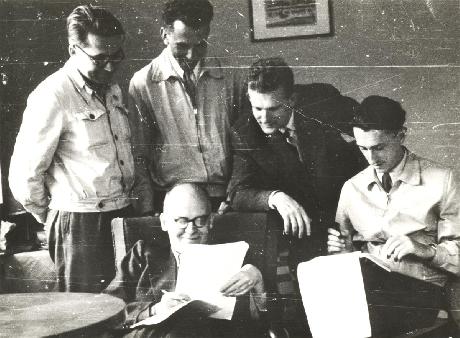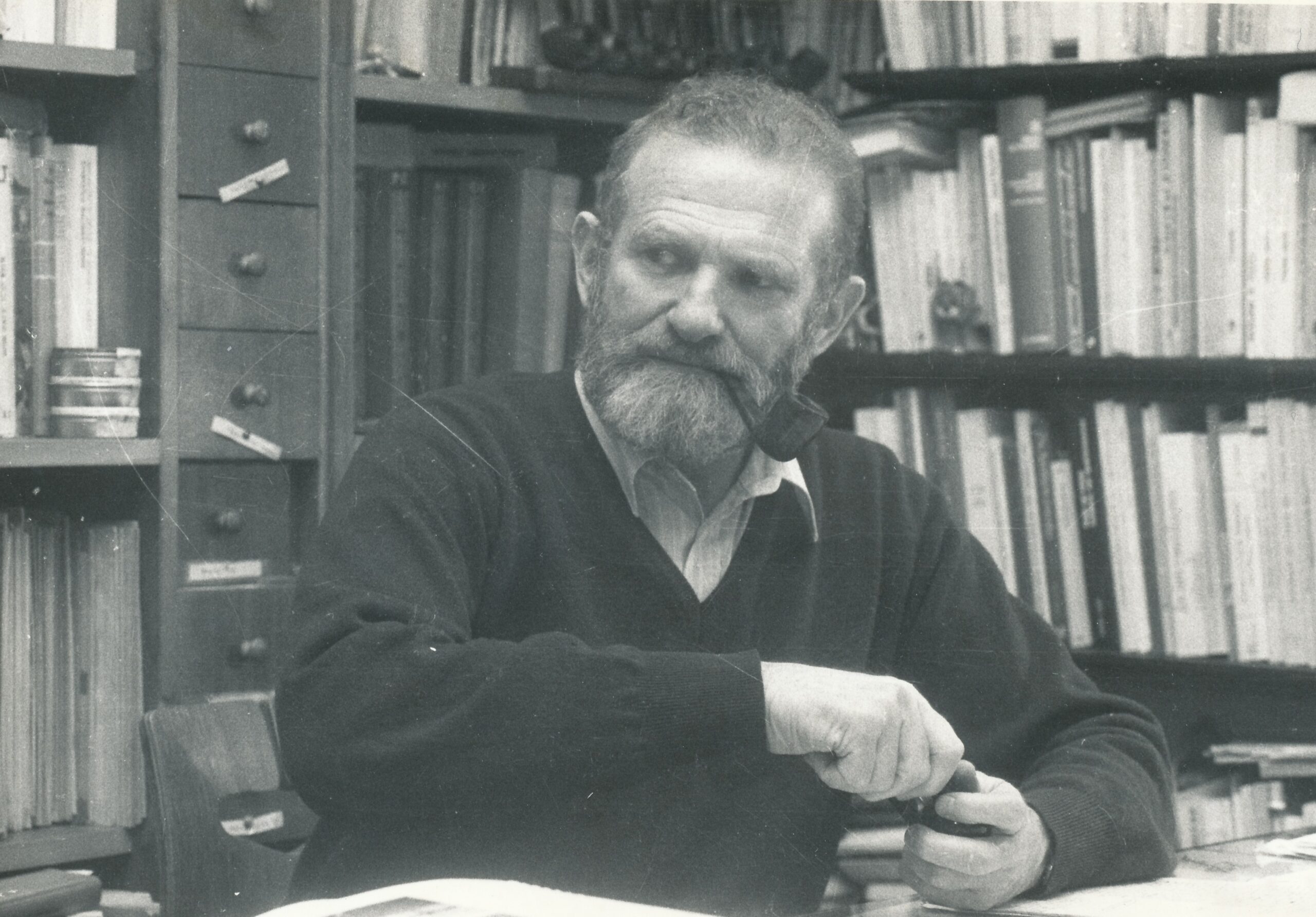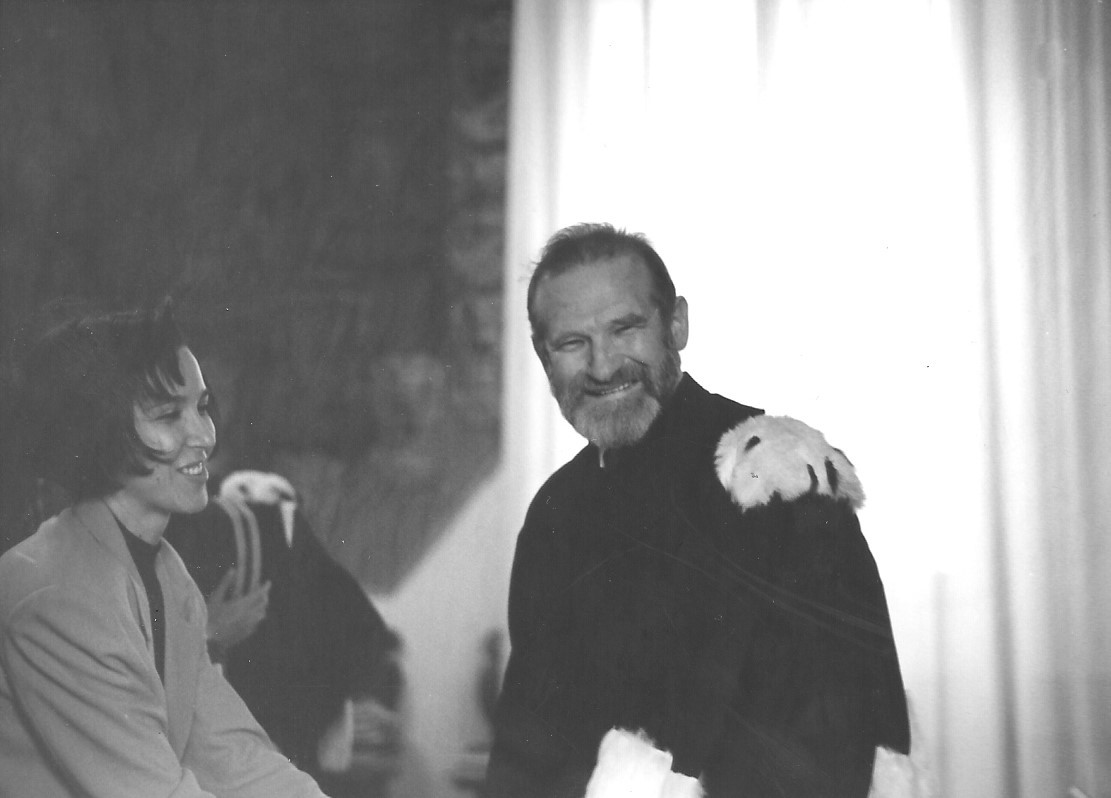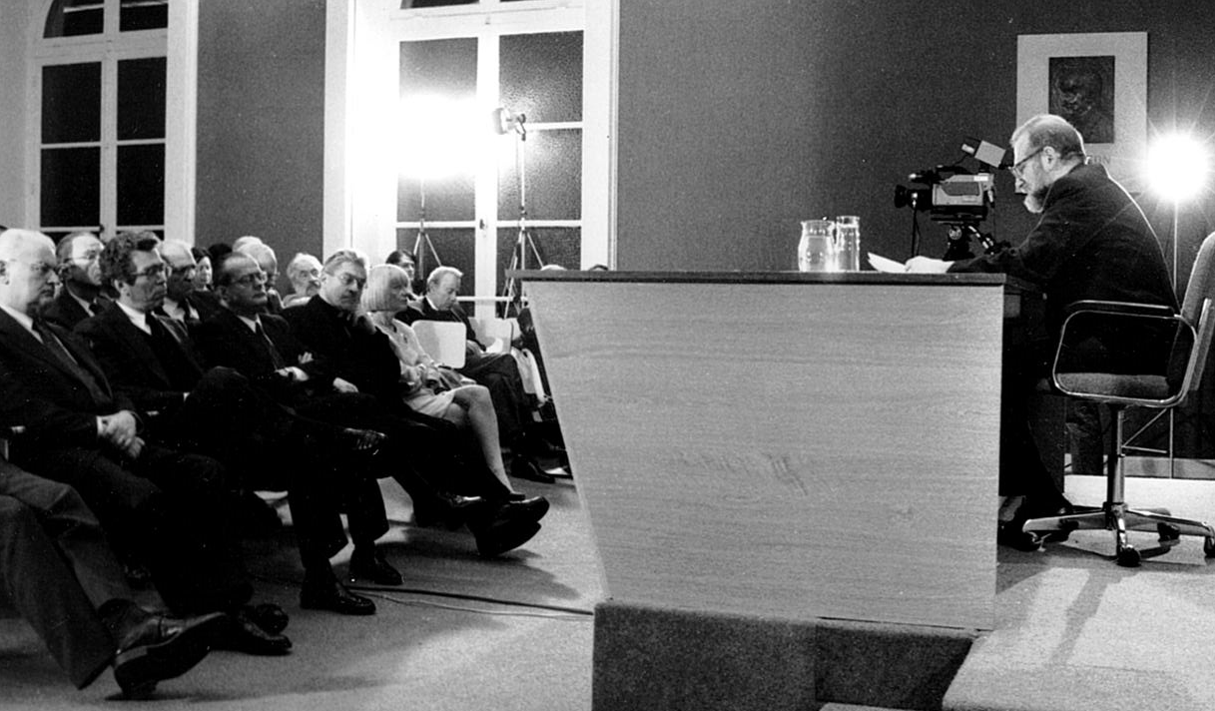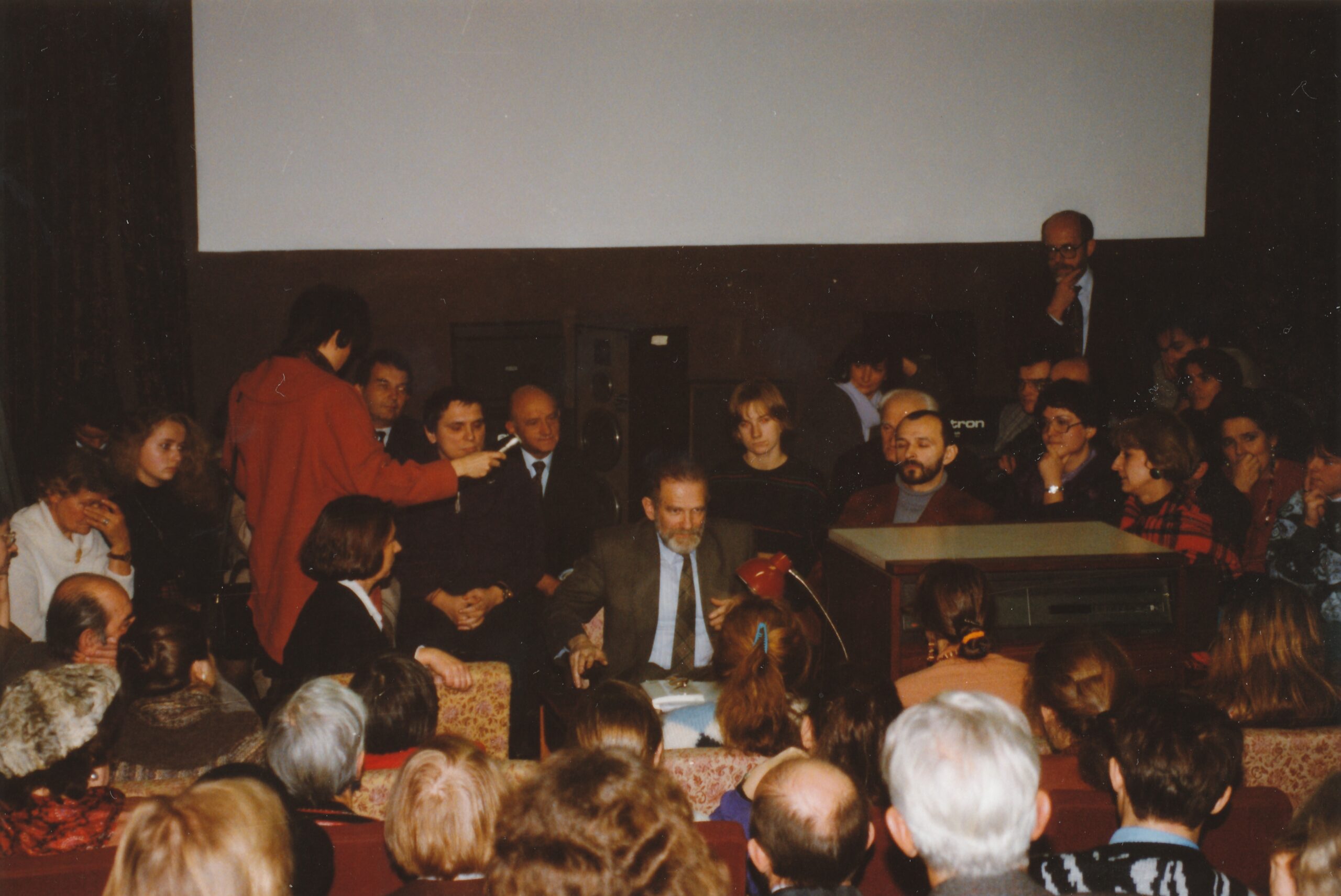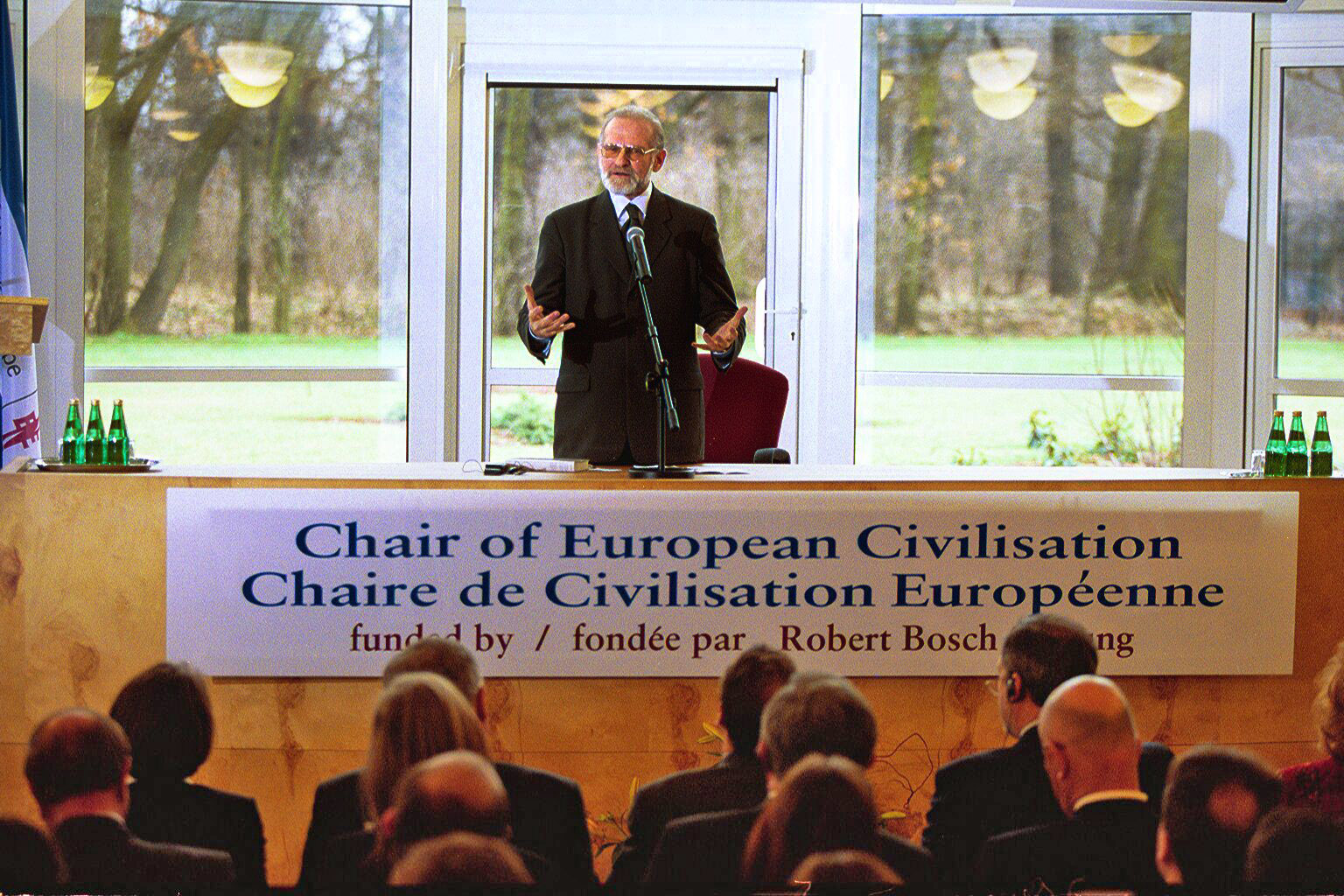Historian
Bronisław Geremek obtained his MA at the Faculty of History of the University of Warsaw in 1955 on the basis of the thesis “Ze studiów nad stosunkami gospodarczymi między miastem a wsią w Prusach Krzyżackich w pierwszej połowie XV w.” (From studies on economic relations between town and country in Teutonic Prussia in the first half of the 15th century) and began his doctoral studies, co-founding a group of historians gathered around Professor Marian Małowist. In 1956, he received a scholarship of Section VI of the École Pratique des Hautes Études in Paris. He joined the circle of historians forming the historical scientific school “Annales”, his champions being the leading French historians Fernand Braudel and Maurice Lombard. The “Annales” school created a new research method – by focusing attention on economic and social phenomena, the living conditions of ordinary people, it described changes in terms of long duration, the formation of civilisation, the culture of coexistence, economic exchange.
In 1962, he defended his PhD thesis “Mercenary labour in the crafts of Paris 13th to 15th century: a study of the medieval labour market”. It was subsequently published in France (1968 and 1982) and Italy (1975). From 1962 to 1965, Bronisław Geremek again worked in Paris, heading the Centre for Polish Culture at the Sorbonne.
His greatest fame came with his studies of poverty and social marginality, initiated in the 1960s in the circle of historians gathered around Michel Mollat. During this period, he authored a number of articles focused on prominent French scholars such as Marc Bloch, Luc Febvre, Fernand Braudel, Jacques Le Goff, as well as the first Polish edition of a collection of Braudel’s articles (“Historia i trwanie” in 1971). In 1962, he published the pioneering article “Mentality and collective psychology in history” in the Historical Review.
Since his return from Paris at the end of the 1960s, he has been an active member of the Polish Historical Society, serving, among other, as secretary general of the General Meeting of Polish Historians in Toruń in 1974.
The habilitation he obtained in 1970 was devoted to marginal groups in medieval Paris. It was published in 1976 in France as “Les marginaux parisiens aux XIVe et XVe siècles” (The margins of society in late medieval Paris) gaining a major recognition. For this work, in 1977, The Académie Française awarded Bronislaw Geremek with an annual Prix Marie-Eugène Simon-Henri-Martin.
In the 1970s, Bronislaw Geremek wrote his major books “Mercy and the Gallows. A history of misery and charity” and ‘The world of “beggar’s opera. The image of vagabonds and paupers in European literature from the 15th to the 17th century”, which were only published abroad due to a censorship clause imposed on him in Poland. Both books were published in Poland shortly the fall of communism in 1989. In 1978, he held a one-year fellowship at the Woodrow Wilson International Center.
Professor B. Geremek made groundbreaking contributions to the world historiography of the Middle Ages. He was one of the most cited Polish scholars in the multilingual historiographical literature. The bibliography of his works includes more than 300 items, including 10 books that have been translated into 10 languages, including French, English, German and Italian. He mastered linking the history of Poland with the history of Europe and the destiny of Europe with the one of Poland (e.g. “The Common Roots of Europe”, Cambridge 1996).
Prof. B. Geremek’s research covered such areas as: relations between village and city in Teutonic Prussia, the history of medieval Polish culture, the history of “marginal people” in France, the image of Paris in the time of François Villon. He explored the history of the largest city in medieval Europe, Paris. He also studied problems of the German Reich, Rome, Venice, Aragon, Castile and England. In his research, he reached out to Novgorod the Great as a place of contact between the Catholic and Orthodox faiths.
Bronisław Geremek authored publications on the history of medieval culture in Poland as well. He was a co-author of its first volume (published in 1985), and from 1976, for the next 10 years, he headed the Team for the History of Late Medieval Culture, created by him at the Institute of History of the Polish Academy of Sciences, whose task was to prepare the second volume (14th – 15th centuries). For political reasons, the work was only published two decades later (“Kultura Polski średniowiecznej: XIV-XV w.”, 1997). Bronislaw Geremek authored the following chapters of this opus magnum: Levels of culture: oral transmission and literary culture, Man and play: ludic culture, Public life and political culture, Sense and awareness of geographical space, Revival of the history of culture.
In 1985, he was removed from his position at the Polish Academy of Sciences for political reasons. He then took up a job at the Jesuit Writers’ Library. He returned to the Institute in 1989. He was then appointed Associate Professor and in 1995 Ordinary Professor at the Tadeusz Manteuffel Institute of History of the Polish Academy of Sciences in Warsaw.
The international recognition of Bronisław Geremek’s academic achievements was reflected in his nomination for the International Chair at the College de France in the academic year 1992/1993. The only Pole to have previously held the Chair at the College de France was Adam Mickiewicz in mid-XIX century. Since 2002, Professor Bronislaw Geremek headed the Chair of European Civilisation at the College of Europe in Natolin focusing on the study of European history and cultural identity.
The scientific legacy of B. Geremek is arranged in two main cycles of studies. The first of these includes books: „Najemna siła robocza w rzemiośle Paryża XIII-XIV wieku” (1962, Hired labour in artists’ studios in Paris in the 13–14th centuries), „Ludzie marginesu w średniowiecznym Paryżu: XIV -XV wiek” (1971, The Margins of Society in Late Medieval Paris, transl. J. Birrell Cambridge, 1987) as well as „Życie codzienne w Paryżu Franciszka Villona” (1972, Everyday Life in Paris of François Villon). The second series begins with a book written for the Parisian series Archives „Inutiles au Monde. Vagabonds et marginaux en Europę aux XIVe-XVIe siècle” (A picture of vagrants and paupers in 15th–16th century European literature, 1980) and also includes later works: „Litość i szubienica. Dzieje nędzy i miłosierdzia” (1989, Mercy and the gallows. The history of penury and charity) and “Świat opery żebraczej. Obraz włóczęgów i nędzarzy w literaturach europejskich XV-XVII wieku” (1989, The world of the “beggar’s opera.”). Two collective works also followed under his editorship: „Kultura elitarna a kultura masowa w Polsce późnego średniowiecza” (1978, Elite culture versus mass culture in late medieval Poland) and „Kultura polski średniowiecznej XIV-XV wieku” (1997, Culture of medieval Poland in the 14th-15th centuries). In 1995, his book „Wspólne pasje” (Common Passions) was published, co-authored with French historian Georges Duby.
He has been awarded 23 honorary doctorates worldwide for his scholarly and public achievements, including universities: François Rabelais in Tours (1982), Utrecht (1986), Columbia (1989), Bologna (1989), Oberlin College (1990), Sorbonne (1991), Leicester (1992), Brown University (1994), Université libre de Bruxelles (1995), University of Turin (1997), Sofia University (1998), Brandeis University in Waltham (1999), University of Quebec in Monreal (2000), Marc Bloch University in Strasbourg (Université de Strasbourg II, 2000), Free University of Belin (2000), Waseda University (2000), University of Padua (2001), Hungarian Academy of Sciences (2001), University of New South Wales in Sydney (2003), Babes-Bolyai University in Cluj (2003), Lumière-Lyon-II University (2005), Jagiellonian University (2005), Viadrina University (2006).
He has also received following awards: Prix Marie-Eugène Simon-Henri-Martin by The Académie Française (1977), the Alfred Jurzykowski Foundation of New York (1986), the Louis Weiss Prize (1989), the Gottfried van Herder Prize (1990), the František Palacky Gold Medal of the Czechoslovak Academy of Sciences (1991), the International Prize of the Société européenne de culture (1992), Golden Plate Award of the American Academy of Achievement (1999), Prix de Société Européenne de Culture, The Pierre Lafue Prize (1999), Grand prix de la francophonie for lifetime academic achievements by The Académie Française (2002), Medal of the Tadeusz Manteuffel Institute of History of the Polish Academy of Sciences (2003), The Jean Rey Prize.
He was a member of: Polish Historical Society, European Medieval Academy, Academia Europea, L’Académie Universelle des Cultures, Société européenne de culture (deputy chairman, 2003), International Crisis Group (member of the board), Academy of Yuste, Polish and French PEN Club, Collegium Invisibile, correspondent member of the Royal Historical Society, honorary member of the Hungarian Academy of Science, correspondent member of the Historical and Philosophical Faculty of the Polish Academy of Arts and Sciences.
Sources:
Encyklopedia Solidarności: Bronisław Geremek https://encysol.pl/es/encyklopedia/biogramy/15919,Geremek-Bronislaw.html
Andrzej Friszke „Bronisława Geremka droga do wolnej Polski”, https://wiez.pl/2017/03/06/bronislawa-geremka-droga-do-wolnej-polski/
Halina Manikowska „Bronisław Geremek” https://ihpan.edu.pl/zmarli/bronislaw-geremek-1932-2008/
Magdalena Pasikowska-Schnass „Bronisław Geremek. W poszukiwaniu zjednoczonej Europy” https://www.europarl.europa.eu/thinktank/en/document/EPRS_BRI(2021)698820
Patryk Pleskot „Siła alternatywnej dyplomacji. Polityka zagraniczna „Solidarności” w latach osiemdziesiątych – rola Bronisława Geremka”, [w:] Bronisław Geremek. Ojciec polskiego liberalizmu, Warszawa 2010
Tomasz Wiślicz „Bronisław Geremek. Historyk niemarginalny”, [w:] Bronisław Geremek. Ojciec polskiego liberalizmu, Warszawa 2010
